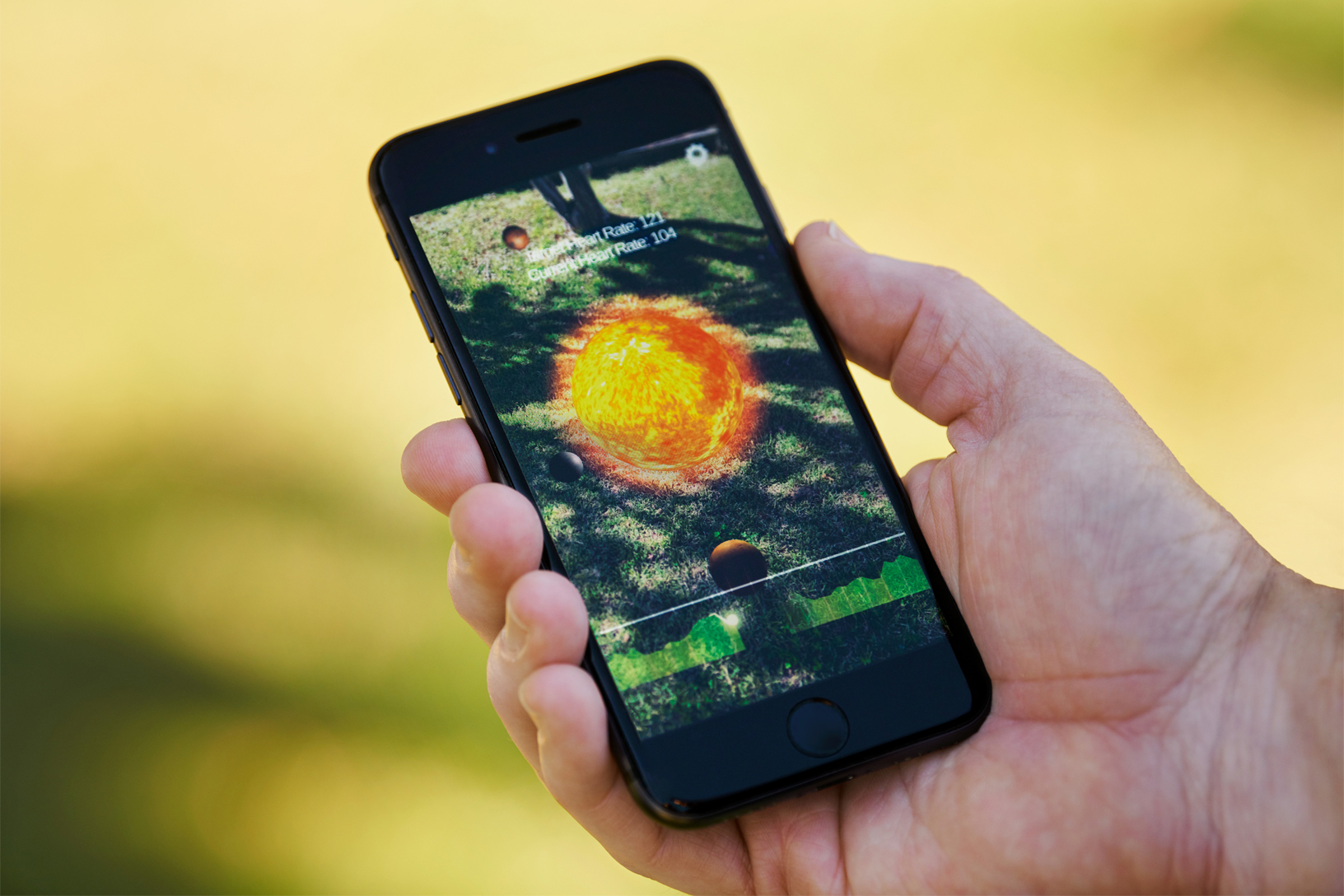Apple celebrates Healium, an iPhone app that's helping veterans with anxiety

iMore offers spot-on advice and guidance from our team of experts, with decades of Apple device experience to lean on. Learn more with iMore!
You are now subscribed
Your newsletter sign-up was successful
What you need to know
- Apple is celebrating Veterans Day today.
- As part of that the company has shared a story about how veterans can use AR to help with anxiety.
- Anyone can try Healium AR out for themselves.
Apple today celebrted Veterans Day by sharing information via a Newsroom post that covers the Healium AR iPhone app and how it can help vets with anxiety.
The piece speaks with veteran Steve Mills, a US Navy commander, abuot how he uses the app to deal with his own anxiety.
In 2008, Mills came back from Iraq and started working to complete his doctorate in ministry, which focused on combat stress. He took a group of Navy veterans through three months of counseling, using Bible verse as a healing tool. While studying how to help others cope with their trauma, he started having panic attacks of his own.Around the same time, in another part of the country, television journalist Sarah Hill was also confronting anxiety, beginning a chain of events that would lead her to develop Healium AR. The Missouri native had been reporting on a never-ending stream of violence and tragedies for almost 20 years when her panic attacks began. "I lived by a police scanner," Hill says. "Ultimately, consuming that much negativity made me sick."She reached out to Dr. Jeff Tarrant, a family friend and licensed psychologist who was exploring what was then an emerging field: neurofeedback. He hooked Hill up to an electroencephalogram (EEG) machine, which uses electrodes placed on the scalp to map electrical activity in the brain. Tarrant paid particular attention to Hill's anterior cingulate cortex (ACC), the part of the brain that is responsible for, among other things, focus and holding attention."Anxiety is basically holding a thought or a feeling for too long and repeating it over and over again," says Tarrant. "So the ACC gets overheated because people are hyperfocused on certain thoughts and feelings and they can't let them go. And so we wanted to see, can we quiet this down?"Tarrant designed a program for Hill to use at home with a laptop and electrodes. She had to keep an animated airplane above a specific threshold on the screen. When she succeeded, it was because she was calming her frontal lobe brain activity, which includes the ACC.It worked. Over time, Hill was able to stop the panic attacks and start sleeping again. Inspired by the experience, she eventually left journalism and started working with a veterans organization that used virtual reality (VR) and AR to transport those who were physically unable to travel to Washington, D.C. to visit the city's war memorials. During those experiences, Hill started noticing a physical change in the veterans."You would see it in their bodies," Hill says. "[They] would relax, their bodies would soften, their breathing would appear to slow. Now I'm not a scientist, so that's why I reached out to Jeff to say, 'Can you study what these experiences are doing to [veterans'] physiology?'"
The newly formed team then started to look at how VR and AR could impact mood and stress. When the technology was tied into the research that had already been done by Tarrant, the result was Healium AR.
I've heard good things about Healium AR before and this further cements it in my list of apps that I need to try sooner rather than later.
You can download Healium AR from the App Store now. At the time of writing it was priced at $4.99.
iMore offers spot-on advice and guidance from our team of experts, with decades of Apple device experience to lean on. Learn more with iMore!

Oliver Haslam has written about Apple and the wider technology business for more than a decade with bylines on How-To Geek, PC Mag, iDownloadBlog, and many more. He has also been published in print for Macworld, including cover stories. At iMore, Oliver is involved in daily news coverage and, not being short of opinions, has been known to 'explain' those thoughts in more detail, too.
Having grown up using PCs and spending far too much money on graphics card and flashy RAM, Oliver switched to the Mac with a G5 iMac and hasn't looked back. Since then he's seen the growth of the smartphone world, backed by iPhone, and new product categories come and go. Current expertise includes iOS, macOS, streaming services, and pretty much anything that has a battery or plugs into a wall. Oliver also covers mobile gaming for iMore, with Apple Arcade a particular focus. He's been gaming since the Atari 2600 days and still struggles to comprehend the fact he can play console quality titles on his pocket computer.
